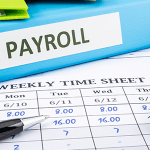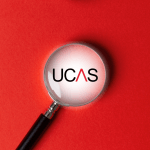If you have been following our previous two posts, then you should by now have a very detailed and well laid out CV. Yet there is still more you can add to make your CV standout from the crowd.
In this last part, we shall delve more into the individual sections of your CV.
References
In our last post, we mentioned how a lot of people prefer to write the phrase ‘references available upon request’.
Now, whilst this a quite a common trend, there is no harm in including your references on your actual CV.
However, should you choose to add them, please make sure you write them correctly, so that prospective employers can contact them easily. An old phone number or email could potentially impact on their decision to invite you to an interview (if they wish to perform a check before they invite you to an interview).
We recommend listing them in descending order, so that they can see who your preferred references are. Not only does this help you to get the best reference possible, but it looks more professional.
In any case, you should include their name, title, company and their contact details (phone number and email). You should also clearly state their professional relationship to you, so that employers know what questions they can ask them about you.
NOTE: if you choose to include personal references, these should be listed after employers or academic references, as it is more important that they are able to view you in a professional capacity. Similarly, before you list them as a reference, first get their permission.
Work experience – how far should you go back?
Whilst you might want to prove that you have always worked or have got a broad spectrum of experience; it isn’t always necessary to list your entire work history.
For instance, if the job has got no relevance to the post you are applying for, then you should not include it as it is only taking up valuable space.
Similarly, if there are some jobs you have done where you only worked there for a few weeks or months, then you may want to also leave these off your CV. Instead, only include jobs where you have got a minimum of three months experience, and also don’t go back more than 10 years.
Job descriptions
When you are describing each role, you should first write the name of your position, the dates you worked there and the name of the company. From here, you can give bullet points listing your key responsibilities and achievements (whilst working in the post) which are transferrable into your new role. If you acquired any skills or qualifications from your time working for them, you can also mention this within your job description.
What if you have got an employment gap?
The need to mention this will depend on a number of things. For instance, if you have worked a number of jobs since the gap then you don’t have to reference it. However, if the gap is quite significant, then we recommend writing down any freelance work or experience you acquired whilst you weren’t working. This shows that whilst you weren’t working, you will still earning valuable skills and experience.
Another thing you can do – if the gap for example was due to illness or maternity leave – is provide an explanation of these gaps in your cover letter.
Education and qualifications
These should be structured with your highest and most recent qualifications at the top before progressing to your older ones.
When listing them, write down the name of the establishment, the dates you attended and the course(s) you did. Next, clearly write down your grades for each subject and make sure you structure each qualification level clearly so that they know when you are talking about your A Levels and when you are discussing your GCSEs.
If you have acquired any online qualifications, these should be listed here too.
Interests and hobbies
Whilst these are a great way to showcase your personality, you should still be careful about which interests you include on your CV. The goal here is to come across as passionate and show that you have got an array of interests. Therefore, if you have got an interest in music or sports, consider adding it on. Similarly, if you have got a hobby that is relevant to the job you are applying for i.e. blogging, then add that on too.
Interests you should leave off your CV include: watching television and movies, or going shopping.
How can you make your CV standout?
- Font – it is important that your CV looks good, but is also easy to read. Most CVs are written in black and in Times New Roman (size – 12 points). NOTE: keep your font the same throughout the entire document.
- Don’t be afraid to praise yourself. Showcase any awards you have won or any additional languages you can speak that will benefit your job.
- Use powerful words/language to describe yourself e.g. ‘growth’ and ‘adaptable’ are great words that employers always look out for.
- Keep your language formal and avoid any personal pronouns – especially when writing about your work history. You should also avoid using any jargon. Now we aren’t talking about the technical kind (particularly if it is relevant to the job you are applying for – as it shows you know what you are talking about), but general jargon as this can make you appear less professional.
- Keep it concise and no longer than two pages of A4. Any longer and it is more likely to be dismissed for being too long.
- Add a cover letter to your CV so you can go into greater detail about why you are right for the job. Remember whilst this needs to be written like a letter – including your name, number and address alongside the company’s name and address – it should focus on your key skills and highlight other areas which you weren’t able to include in your CV. Similarly, this is your chance to inject a little more of your personality into your application as you can be more personal in your writing. NOTE: this cover letter should only be a few paragraphs long and should be welcoming and explain why you want to apply for the post e.g. where you heard about it; why you are right for the role; previous experience/qualifications; how you can make a difference and your knowledge of the company.
As you can see, creating the perfect CV can be easy once you have got the tools to make it happen. So why not review your CV today and give it a well-earned revamp?





Comments (0)
Join the conversationCancel Reply